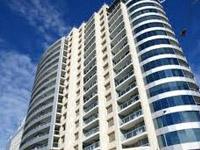
Debt disputes – a case study
A recent decision of a BCCM Office adjudicator examines the BCCM Act provisions and recent appeal decisions about debt disputes.
It represents a good case study to assist understanding the jurisdiction of BCCM Office adjudicators in these disputes.
At the heart of the application in Mermaid Palms [2013] QBCCMCmr 326 was the question of whether the body corporate had acted reasonably in refusing to waive penalty interest and recovery costs relating to a body corporate debt resulting from the failure of the applicant to pay body corporate levies on time. The applicant had entered a payment plan but disputed the application of penalty interest and relied on an understanding that no interest would be sought while there was compliance with the payment plan.
In citing section 229A(3) of the BCCM Act which provides that an adjudicator does not have jurisdiction in a debt dispute, the adjudicator pointed out that the case was not strictly about debt recovery. The applicant was seeking to clarify the amount owing and to challenge the body corporate’s decision about the application of penalty interest.
However, the adjudicator explained that section 229A(3) is not limited to a claim to recover the amount of a debt and went on to say: “It seems difficult to argue there is no ‘debt dispute’ if the body corporate is claiming there is an amount outstanding and (the applicant) disputes the amount. Section 229A(3) therefore prevents me from making any declaration of how much (the applicant) owes the body corporate.”
The adjudicator pointed to the BCCM Act’s provisions for lost discounts, penalty interest and recovery costs as demonstrating a clear legislative intent that owners promptly pay amounts claimed by their body corporate. He also identified the suspension of body corporate voting rights as a further consequence of outstanding contributions.
As the adjudicator in Mermaid Palms emphasised, recovery costs can quickly reach extremely high levels. Indeed it is not unusual for recovery costs to reach a level far exceeding the original amount of the disputed debt. The status of recovery costs as a body corporate debt has recently been clarified. Following the 2009 decision in Body Corporate for Liberty v Alotier P/L & Ors [2009] CCT KA009-08 the position was that recovery costs must be pursued as a debt and, as such, the costs did not become payable by the owner until the body corporate had obtained a judgment or order as to the costs. However, the recent decision of Body Corporate for 399 Woolcock Street v Sexton & Ors [2013] QCATA 55 determined that recovery costs are a body corporate debt under the BCCM Act. The member determining that case found it ‘impossible to accept that parliament actually intended that no body corporate had any right to recovery costs, as a body corporate debt, without proceedings in a court or this tribunal’ (at paragraph 13).
The adjudicator in Mermaid Palms said: “The practical consequences of the debt recovery provisions require the reverse of normal commercial practice in that owners should pay first and ask questions later.”
In summary the adjudicator in Mermaid Palms found that while any portion of the amount claimed by the body corporate remained outstanding section 229A(3) of the BCCM Act denied him jurisdiction to determine a dispute about the debt. While the amount remained unpaid, the debt was likely to increase substantially through penalty interest and mounting recovery costs. The ongoing debt also affected other rights of the debtor, including body corporate voting rights.
If the claimed amount was paid an adjudicator would have jurisdiction to determine an application regarding the reasonableness of the body corporate decisions concerning the debt.

AccomNews is not affiliated with any government agency, body or political party. We are an independently owned, family-operated magazine.







